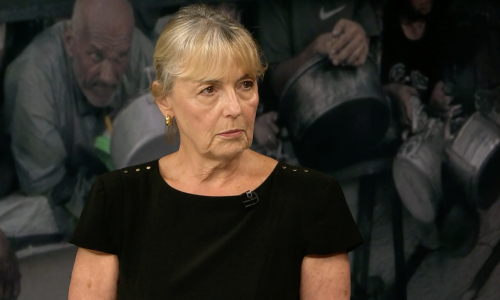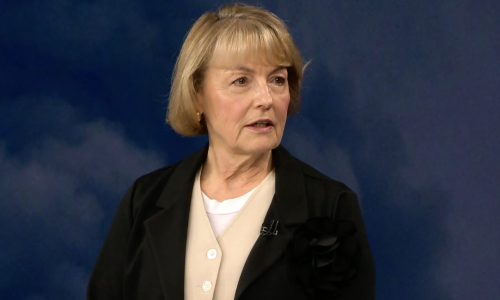Croatian Foreign and European Affairs Minister Vesna Pusic said in Zagreb on Sunday that the Ljubljanska Bank case should be separated from the ratification of Croatia's Treaty of Accession with the European Union in the Slovenian Parliament and that Zagreb and Ljubljana should on their own resolve that problem over which the Slovenian government had threatened to block Croatia's EU entry.
Slovenian Foreign Minister Karl Erjavec provoked a wave of reactions among the Croatian public when he told the Slovenian media on Saturday that there were realistic chances for Slovenia not to ratify Croatia's accession treaty with the EU should Zagreb refuse to resolve the issue of the debt of Ljubljanska Bank as part of the negotiations on the succession to the former Yugoslavia.
"The only way that is good and that we have proposed is to separate the ratification issue from the Ljubljanska Bank issue. They accepted the initiative for Croatia and Slovenia to appoint a financial expert who would propose a solution," Pusic told reporters at Zagreb's Pleso airport, ahead of her trip to Brussels.
"This really must be something entirely separated from the ratification. We must discuss it further, find a solution, but Croatia-Slovenia European partnership is an entirely different project..." said Pusic who is scheduled to meet Erjavec in Brussels.
According to her, this is the best moment to launch the ratification process in the Slovenian parliament so that Slovenia could send a positive message to the Croatian public. "I would expect this process to be launched, and the Ljubljanska Bank issue should, without a doubt, be dealt with," Pusic said, stressing that Croatia and Slovenia should resolve this problem "in their own neighbourhood."
Pusic said the ratification of Croatia's EU accession treaty in national parliaments of EU member states was proceeding smoothly and that no political obstacles were expected. She however warned that in the times of crisis there was a certain amount of scepticism towards the admission of new members.
Pusic is traveling to Brussels to attend meetings of the European Union's Foreign Affairs Council and General Affairs Council, where she will try to find out whether the Peljesac Bridge construction project can apply for funding from EU structural funds. She is scheduled to hold talks with European Regional Policy Commissioner Johannes Hahn.
"I am going to Brussels to see if the Peljesac Bridge is a project that can be financed from EU structural funds. If we get a positive answer, and there are many reasons why I hope we could, a technical elaboration will follow and we will apply for funding from EU structural funds for that project," Pusic said.
She added that the agenda would include various solutions, that there was an idea of a corridor through Bosnia and Herzegovina, citing however conditions set by the European Commission due to the Schengen regime, which she said was why the government is considering the construction of the Peljesac Bridge.




































